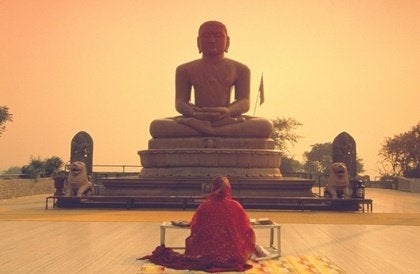Unlike other philosophies and beliefs, in Buddhism there is no absolute mandate or insurmountable rules. Living standards are summarized in the five precepts of Buddhist ethics. As the name suggests, these are not rules, but precepts: this differentiation is important.
The difference between a commandment and a precept is that the first is obligatory, while the second is recommended. What is prescribed is more of a guide, suggestion or guideline. The five precepts of Buddhist ethics do not seek to impose a type of behavior, but to draw a line on what they consider best for the individual and society.
- It is important to note that the five precepts of Buddhist ethics are subject to a criterion that forms the axis of this philosophy: compassion.
- That is.
- In case of doubt or contradiction.
- It is always recommended to choose the most compassionate behavior.
- In words.
- There is some flexibility in the interpretation of these precepts.
- Which are as follows.
Overcoming anger by not being angry; overcomes the wicked with kindness; conquer the little one generously and the liar by telling the truth?. Buddha?
Every precept is selective. The person voluntarily accepts it if they agree with him. The first, which is to refrain from taking the life of a being who feels (people and animals), has an equivalent that will give him reason to be: “Through actions of love and kindness I purify my body. “
To accept this precept, which is the most important, it must be understood that every living being is afraid of punishment, every life is a precious good and all sentient beings are equal, it is only acceptable to take one life to defend yours.
It is another of the five precepts of Buddhist ethics that coincides with the commandments or norms that exist in other beliefs and religions, this essentially means not stealing, and is inspired by the belief that generosity purifies, while greed corrupts.
For Buddhism what enriches is giving, not taking, depriving others of their property is a form of violence, since they too are part of their identity, in this way cultivating generosity dilutes greed.
In Buddhism there is no statement that gives or attributes a sense of guilt to sexuality. There is also no discrimination of any kind because of people’s sexual orientation. Buddhism accepts heterosexuality, homosexuality, onanism, cross-dressing and celibacy. He also accepts monogamy, polygamy and polyandria.
What is considered sexual misconduct in Buddhism is any practice that hurts another person or gives disproportionate importance to sex. For this current of thought, good living does not depend on the satisfaction of desires, but on their voluntary elimination.
Rather than lying, this precept of Buddhist ethics gives sacred value to the word. Buddhists believe that truth is a source of trust and is absolutely necessary for social cohesion, so they reject the lie.
They believe that lying is an act of violence against others, because they condemn them to fantasy and unreality, which prevents them from acting consciously. Likewise, the liar hurts himself, because he ends up being enslaved by his own lie. To hold a lie, you’ll have to say a lot more.
Buddhists advocate a clear and peaceful conscience. They believe that ingestion of toxic substances leads to the “fog of deception”, so they defend the practice of meditation as an essential means of achieving the joy that comes from liberation.
Not only do they reject alcohol and drug use, but they also come into contact with situations that can disturb the mind or confuse reason, such as massive and unbridled events, television, compulsive shopping, etc.
The five precepts of Buddhist ethics are not intended to suppress, but to liberate, in Buddhism it is very important to break ties and allow consciousness to spread to the fullest, so, in essence, all these guidelines aim to promote individual well-being. -to be, not submission to the moral authorities.

